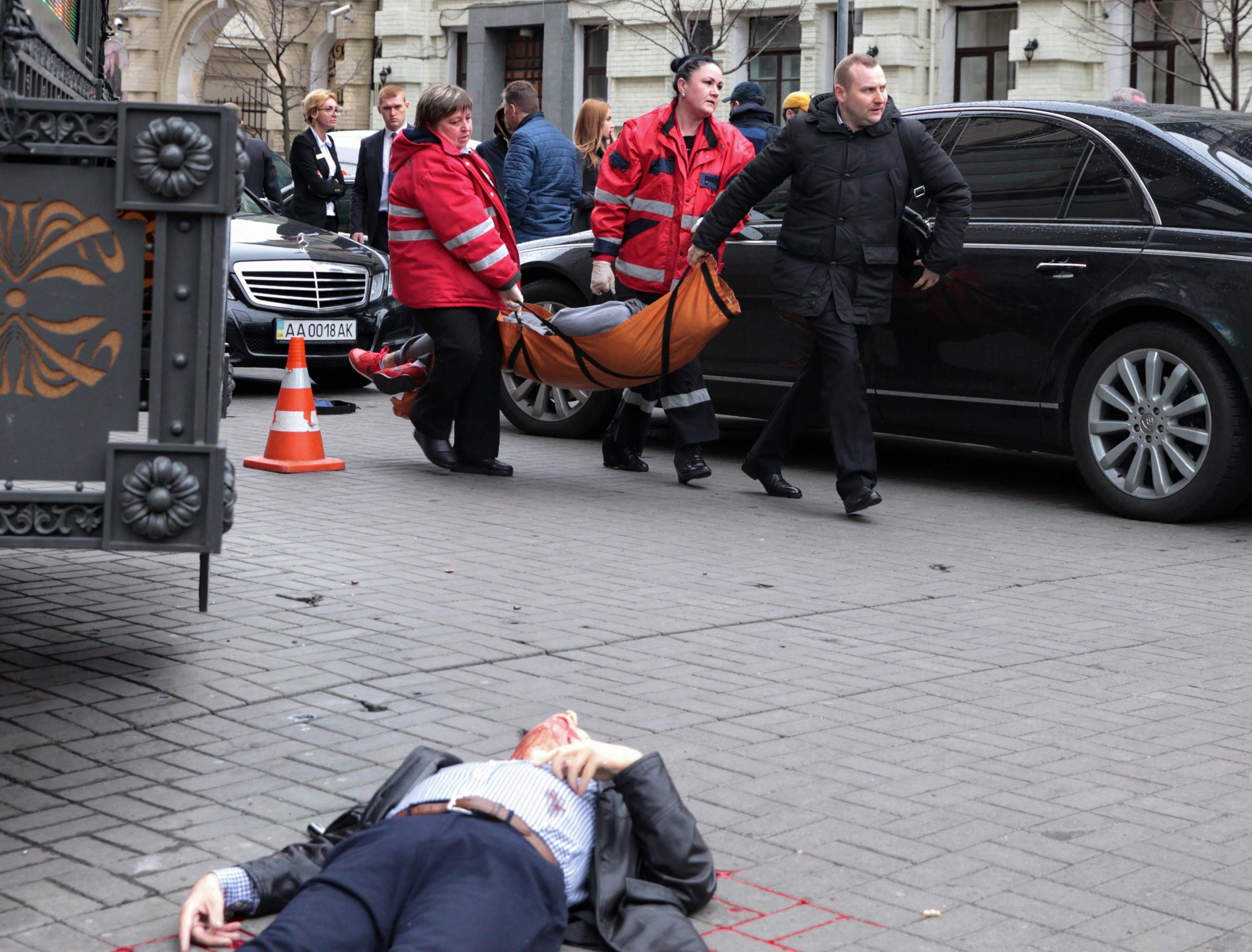Denis Voronenkov: Murdered Putin critic said in interview he knew he was in danger
'It's a totally amoral system and in its anger it may go to extreme measures. There's been a demonisation of us'

Your support helps us to tell the story
From reproductive rights to climate change to Big Tech, The Independent is on the ground when the story is developing. Whether it's investigating the financials of Elon Musk's pro-Trump PAC or producing our latest documentary, 'The A Word', which shines a light on the American women fighting for reproductive rights, we know how important it is to parse out the facts from the messaging.
At such a critical moment in US history, we need reporters on the ground. Your donation allows us to keep sending journalists to speak to both sides of the story.
The Independent is trusted by Americans across the entire political spectrum. And unlike many other quality news outlets, we choose not to lock Americans out of our reporting and analysis with paywalls. We believe quality journalism should be available to everyone, paid for by those who can afford it.
Your support makes all the difference.A former Russian member of parliament who defected to Ukraine and began sharply criticising Russian President Vladimir Putin was gunned down in downtown Kiev in an apparent contract killing.
Ukrainian President Petro Poroshenko called the murder of Denis Voronenkov, a former member of Russia's Communist Party who fled to Kiev in October 2016, "an act of state terrorism by Russia".
A suspected assailant was arrested after Mr Voronenkov was shot twice in the head earlier this week, dying on the spot.
The suspect's identity or other details were not immediately made public. In Moscow, a Kremlin spokesman denied Russian involvement in the killing.
But Russia's critics were likely to draw parallels between the slaying and the deaths of other Putin foes. It also raises further alarm in Washington, DC, where Russia has come under scrutiny for allegedly trying to influence the presidential election to aid Donald Trump.
In an interview with The Washington Post - less than 72 hours before his death - Mr Voronenkov complained about anonymous threats against him and his wife, Maria Maksakova, a former member of the United Russia party founded by Mr Putin, with whom he fled to Kiev last year.
After receiving Ukrainian citizenship in December, he testified in the case against Viktor Yanukovych, the former Ukrainian leader who was toppled in 2014 revolution after dozens of protestors were killed in shooting in downtown Kiev.
Before fleeing Russia, Mr Voronenkov was the target of a fraud investigation. He was formally charged in February after a high-profile interview where he compared the patriotic fervour in Russia to Nazi Germany.
Mr Voronenkov said the charges against him over a corporate raiding case had been fabricated by his political enemies.
Shortly before his death, he called the Russian state under Mr Putin ”totalitarian,“ said he had always opposed Russia's annexation of Crimea despite having voted for it in 2014 in parliament.
He said he planned to live in Kiev for the foreseeable future, where he had friends in the pro-Western bureaucracy from his time in the Soviet army.
He could likely return to Russia only after Mr Putin's death, he said.
In the three years since Ukraine's revolution, Kiev has become something of a meeting point for Russian opponents of the Kremlin.
The city has taken on the role of a modern Casablanca just 500 miles southwest of Moscow, where members of Russia's liberal, leftist and nationalist opposition - as well as those seeking to escape a tightly controlled political landscape in Moscow - have congregated in relative safety.
Mr Voronenkov's death, if tied to a Kremlin order, indicates that Kiev has become a more dangerous place for them.
Mr Voronenkov and his wife were concerned about their security, specifically citing their conflict with Russia. Speaking over black tea in the dim lobby bar of Kiev's Premier Palace Hotel, he said that fears of harassment forced him to keep secret the location of where they rented a house outside of Kiev with their children.
"For our personal safety, we can't let them know where we are," he said toward the end of the hour-long interview. "It's a totally amoral system and in its anger it may go to extreme measures. There's been a demonisation of us. It's hard to say what will happen.
“The system has lost its mind,” he added. “They say we are traitors in Russia. And I say, 'Who did we betray?' I gave testimony against the citizen of another country who was president, who fled his country, created a bloodbath, betrayed his country.”
As he left the interview, he added: “It's hard to imagine we will be forgiven.”
In the months before his death, there had been attempts to hack his Twitter account and his wife's email account. He had sought out security contractors to try to safeguard his devices and there were rumours he was under surveillance.
On Thursday, a gunman opened fire at Mr Voronenkov and his bodyguard outside of the hotel, where he was on his way to meet another former Russian member of parliament in exile, Ilya Ponomarev. Mr Voronenkov's bodyguard, who opened fire at the assailant, was injured.
Mr Voronenkov and Mr Maksakova's defection had aroused criticism both in Russia and among Ukrainian circles on the right, who questioned whether the former Russian parliament members were seeking to curry favour in their adopted home by suddenly and aggressively criticising Mr Putin after benefiting under his regime.
Join our commenting forum
Join thought-provoking conversations, follow other Independent readers and see their replies
Comments